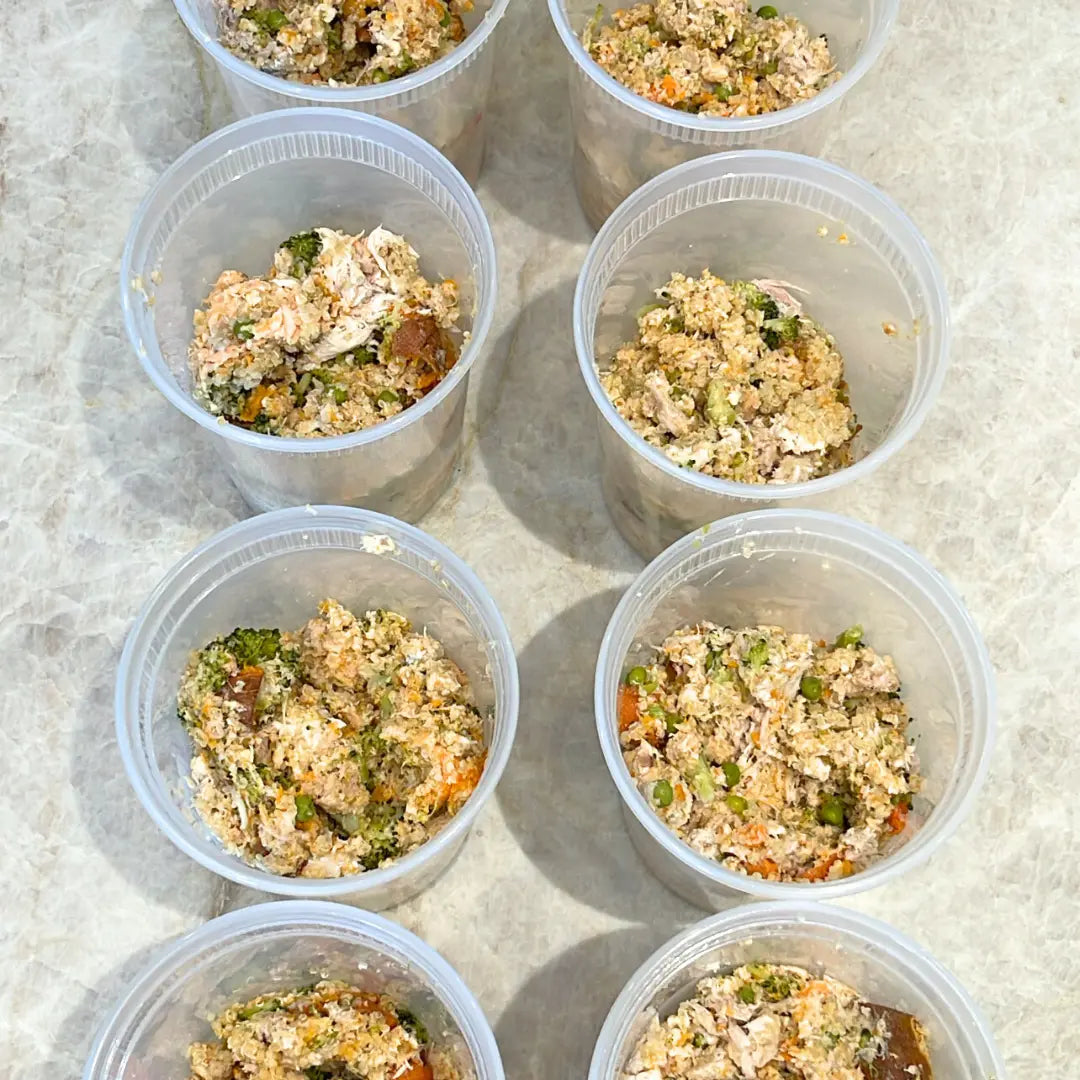Recipe Note
How long does this treat last?
Store in the fridge for up to 1 week or freeze for up to 3 months.
How much should I serve to my dog?
1 tablespoon a day per 10 lbs of dog weight
What is Quercetin?
Quercetin is a flavonoid, a type of plant pigment found in many fruits, vegetables, grains, and leaves. It's known for its antioxidant and anti-inflammatory properties. In humans, quercetin has been studied for its potential health benefits, including its ability to help with allergies, inflammation, and cardiovascular health.
In dogs, quercetin is sometimes used as a natural remedy for allergies. Allergic reactions in dogs can manifest as itching, scratching, sneezing, watery eyes, and other symptoms similar to those in humans. Quercetin is believed to help alleviate these symptoms in dogs due to its anti-inflammatory and antihistamine properties.
When a dog is exposed to an allergen, such as pollen or certain foods, their immune system may overreact, leading to inflammation and the release of histamines. Quercetin is thought to help by stabilizing mast cells, which are responsible for releasing histamines, thereby reducing the allergic response.
It's important to note that while some dog parents and quercetin are helpful in managing their pet's allergies, scientific evidence supporting its effectiveness in dogs is limited.
What Are Other Foods with Quercetin That Are Safe for Dogs?
Red apples, blueberries, strawberries, cranberries, leafy greens such as kale, spinach and broccoli & cherries.
How do Omega Fatty Acids Help Dogs with Allergies?
Omega-3 fatty acids are beneficial for dogs, particularly those with allergies, as they have anti-inflammatory properties that can help alleviate symptoms such as itching and skin irritation.
What are Foods That are Safe for Dogs That are Rich in Omega Fatty Acids?
Some foods rich in omega-3 fatty acids that are good for dogs include:
Fish: Certain types of fish, such as salmon, mackerel, sardines, and trout, are excellent sources of omega-3 fatty acids. Read this guide to all things Fish for Dogs!
Fish oil: Fish oil supplements formulated specifically for dogs are available and can be added to their food. These supplements typically contain high levels of omega-3 fatty acids, particularly EPA (eicosapentaenoic acid) and DHA (docosahexaenoic acid).
Flaxseeds: Ground flaxseeds are a plant-based source of omega-3 fatty acids, specifically alpha-linolenic acid (ALA). Sprinkling ground flaxseeds over your dog's food can provide them with a vegetarian source of omega-3s. Want to learn which seeds your dog can and cannot eat? Read more here!
Chia seeds: Like flaxseeds, chia seeds are rich in ALA omega-3 fatty acids and can be added to your dog's diet. However, it's important to soak chia seeds before feeding them to your dog to prevent them from expanding in your pet's stomach. Learn more about chia seeds HERE!
What are the Benefits of Omega-3 Fatty Acids for Dogs with Allergies?
Reduced inflammation: Omega-3 fatty acids have anti-inflammatory properties that can help alleviate inflammation associated with allergic reactions, including itching, redness, and swelling of the skin.
Improved skin and coat health: Omega-3 fatty acids support healthy skin and coat, which can be particularly beneficial for dogs with allergies that may experience dryness, flakiness, or hair loss due to scratching and irritation.
Modulated immune response: Omega-3 fatty acids may help regulate the immune system, potentially reducing the severity of allergic reactions in dogs by modulating the immune response to allergens.











